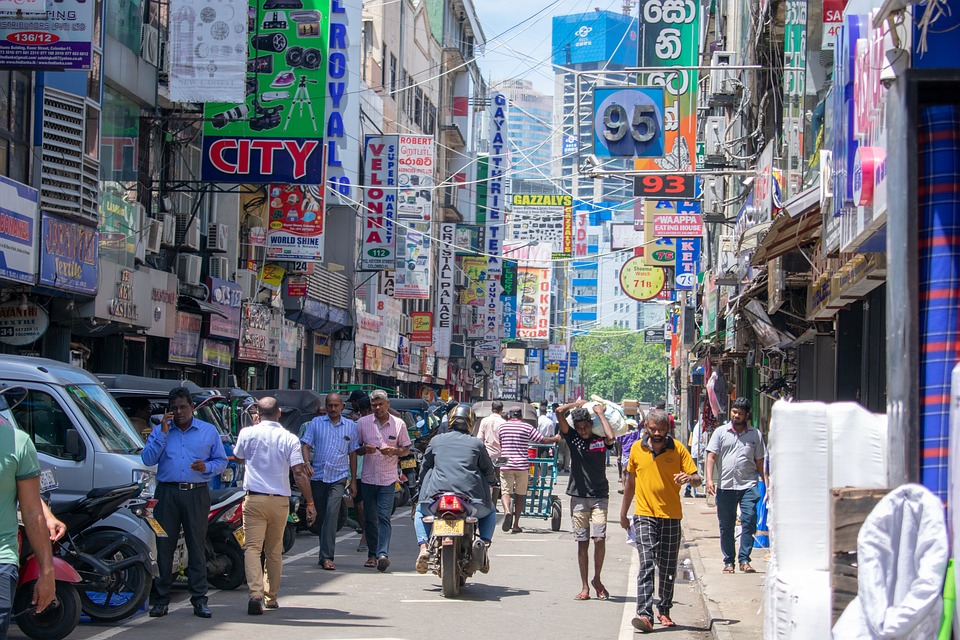Ensuring Food Safety in Sri Lanka

In this article, we will discuss the importance of ensuring food safety in Sri Lanka. We will cover various aspects of food safety practices, regulations, and tips for both locals and tourists to avoid foodborne illnesses.
Table of Contents
ToggleWhy is food safety important in Sri Lanka?
Food safety is crucial in Sri Lanka to prevent the spread of foodborne illnesses. Poor hygiene practices, improper food handling, and lack of sanitation can lead to various health risks such as food poisoning, diarrhea, and other infections. Ensuring food safety not only protects the health of individuals but also contributes to the overall well-being of the population.
It is important for restaurants, street food vendors, and food manufacturers in Sri Lanka to adhere to strict food safety standards to maintain the quality and safety of the food they serve to customers. Additionally, tourists visiting Sri Lanka should also be mindful of where and what they eat to avoid potential health risks.
What are the food safety regulations in Sri Lanka?
In Sri Lanka, the Food Act and the Food Regulations govern food safety standards in the country. The Food Act regulates the production, distribution, and sale of food products, while the Food Regulations set out specific requirements for food handling, storage, and preparation.
Restaurants, food vendors, and food manufacturers are required to comply with these regulations to ensure that food is safe for consumption. Regular inspections by health authorities are conducted to monitor compliance and ensure that food establishments maintain high standards of hygiene and sanitation.
How can I ensure food safety while traveling in Sri Lanka?
When traveling in Sri Lanka, there are several measures you can take to ensure food safety. It is important to choose reputable restaurants and eateries that maintain good hygiene practices. Avoid eating raw or undercooked food, especially when it comes to meat, seafood, and eggs.
Drink only bottled or boiled water, and avoid consuming ice or beverages with ice cubes of unknown origin. Wash your hands before eating and use hand sanitizer when necessary. It is also advisable to carry some snacks or energy bars with you in case you are unable to find safe food options while traveling.
What are the common food safety risks in Sri Lanka?
Some common food safety risks in Sri Lanka include contaminated water sources, improper food storage and handling practices, and lack of sanitation in food establishments. Street food vendors may not always follow the best hygiene practices, increasing the risk of foodborne illnesses.
Seafood dishes, especially those that are not properly cooked, can also pose a risk of food poisoning. Tourists should be cautious when trying new and unfamiliar dishes, as they may not be accustomed to local ingredients or cooking methods.
What should I do if I suspect food poisoning in Sri Lanka?
If you suspect that you have contracted food poisoning while in Sri Lanka, seek medical attention immediately. Symptoms of food poisoning may include nausea, vomiting, diarrhea, stomach cramps, and fever. It is important to stay hydrated and rest until the symptoms subside.
Contact the nearest healthcare facility or hospital for proper diagnosis and treatment. It is also advisable to report the incident to the relevant health authorities so that they can investigate and prevent further cases of foodborne illnesses.
Conclusion
Ensuring food safety in Sri Lanka is essential to protect the health and well-being of both locals and tourists. By following proper food handling practices, choosing reputable establishments, and staying informed about common food safety risks, individuals can minimize the risk of foodborne illnesses. It is important for all stakeholders, including government authorities, food establishments, and consumers, to work together to uphold high standards of food safety in Sri Lanka.
FAQs
1. Can I drink tap water in Sri Lanka?
No, it is recommended to drink bottled or boiled water to avoid the risk of waterborne illnesses.
2. Are street food vendors safe to eat from in Sri Lanka?
While some street food vendors may maintain good hygiene practices, it is important to be cautious and choose vendors with visible cleanliness standards.
3. How can I report a food safety concern in Sri Lanka?
You can report any food safety concerns to the relevant health authorities or local municipality for investigation.
4. What are some common symptoms of food poisoning?
Common symptoms of food poisoning include nausea, vomiting, diarrhea, stomach cramps, and fever.
5. How can I prevent foodborne illnesses while traveling in Sri Lanka?
To prevent foodborne illnesses, avoid eating raw or undercooked food, drink only bottled or boiled water, and practice good hand hygiene.
All Categories
Recent Posts
How to Obtain an International Driving License in Sri Lanka
Flying from KTM to Sri Lanka: What You Need to Know
Affordable Business Class Flights to Sri Lanka

